November 15th, 2018
 Thank you so much, Will, for that incredibly generous introduction, and for all the thought and effort you’ve put into this. And many thanks to Jamie, and David, and Adam, for making me blush for the last twenty minutes.
Thank you so much, Will, for that incredibly generous introduction, and for all the thought and effort you’ve put into this. And many thanks to Jamie, and David, and Adam, for making me blush for the last twenty minutes.
Since David is now finishing his biography of Eleanor Roosevelt, everyone who knows him knows that he rarely comes out of his writing cave for ANYTHING at this stage of the game, so I’m so happy he’s here.
Jamie came all the way from Santa Fe, which is insane, and which goes to show how much he cares about this organization and the people behind it.
And Adam rearranged his trip back home to the UK, to extend his stay here for this event, which is way beyond the call of duty.
Thank you guys so much. It means the world to me.
And thank you to Deirdre David, and to everyone at BIO, for this award, which was certainly not something I ever expected.
I’ve always thought of awards as something for authors, not for editors, but one of the great things about the BIO organization, is that they recognize that authors working in this field, really benefit from a community of professionals who support them, from publishers, and editors, to agents, and critics. We all play a role in providing some kind of assistance to the writers, who are the real heroes, and who for me at least, are the reason I got into this business in the first place.
My rationale for going into publishing and wanting to be an editor, was that I figured it would be like a natural extension of college, where I could keep reading books, and keep putting off having to get a real job. I studied history in college, and I remember reading Robert Caro’s The Power Broker, over one winter break, and being completely mesmerized by it. It seemed to combine elements of history, biography, and journalism, into one seamless portrait, of a person I knew nothing about, Robert Moses, and who I found myself starting to loathe, but who I couldn’t resist reading about. I had never read a book like that before, and I think it showed how an author can turn a biography into a work of art, and still make it a page turner, with a lasting impact.
During my last year of school, I did an internship at a little magazine called Lingua Franca, which covered academia. The idea behind the magazine was that it would cover the academic world the way that The American Lawyer covered the legal world, with real investigative reporting, and a hint of irreverence. The summer internships were supposedly pretty competitive, but the winter internships weren’t, since the other college kids were away at school, and I could do it two days a week while I was still taking classes in New York. No one I knew had ever heard of it, and they assumed it was written in French.
But once I got there and started reading through the back issues, and watching the way the editors worked, I realized how special it was. It combined a love of scholarship, with a love of reporting and writing, which I’d always thought of as separate things. The editor at the time was Alex Star, who was 29, and had just come from The New Republic, and who, to me, seemed like Ben Bradlee from All the President’s Men. It was a tiny, shoe-string operation, so I got to see a little of everything, and the interns were encouraged to try their hand at fact checking, reporting, editing, and writing. The other college intern there with me, Franklin Foer, ended up writing a book that I worked on years later, and two of the magazine’s top writers, were Adam Begley, and Daniel Mendelsohn, both of whom I was lucky enough to work with later on too.
When I got out of school, and finished my internship, I was looking for a job as an editorial assistant, either at a book publisher or at a magazine. With all the journalistic talent at Lingua Franca, you’d think I would have figured out how to use one of these connections to help me find a job. Instead, I started calling publishing companies, by going alphabetically through the Yellow Pages. I picked up the phone and cold called Abrams, and Bantam, and Doubleday, and Harper. I went through the whole list, pretty quickly, and didn’t realize that half of these companies had already consolidated into a much smaller group of companies. When I got to Random House, the HR person on the phone said, “is this Tim Duggan?” I said, “yes, it is!” He said, “you just called here two minutes ago.”
But that was how I discovered that Basic Books was actually a part of HarperCollins, which is where I got my first job. It felt like an intense crash course, where I learned an enormous amount, in the shortest possible amount of time, since it lasted just under a year, when the imprint was folded and then sold off. Basic Books was like a little family, and everyone there was forced to leave and find something new. I was lucky enough, and low enough on the totem pole, to find something else within the company, as an assistant to the editor in chief at Harper.
A couple of years later, I managed to sign up my first book, which was a biography of Hirohito. The only reason it was sent to me was because the agent, Susan Rabiner, had been the editorial director at Basic Books. She was a new agent, and was actually the only agent I’d ever met, since I was still an assistant. But she took a chance on me, because we’d been part of the family exodus together.
Right after finishing the deal, I called the author to congratulate him. His name was Herbert Bix, and he was a historian who lived in Tokyo. He had written a thirty page proposal, that was exceptionally good, and I asked when he thought he’d have some pages from the book to show me. He said, “well, I’ve got about 300 pages I can send you right now.” I said, “Great, go ahead and send them.” So I read them, and they were everything the proposal had promised, which was an authoritative new portrait of Hirohito, showing the true extent of his wartime role. The one thing I noticed, though, was that in the first 100 of those 300 pages, Hirohito hadn’t exactly appeared yet.
It wasn’t that I was worried about the book, since the pages were excellent; it was more that I was actually terrified of whether, or how, to bring this up with the author, since I’d never done this before. So I asked some of my senior colleagues whether I should bring this up now or later, and they all said, just say something now, very gently. So I wrote him a letter, saying how much I loved everything about the book, and how well-written it was, especially the first few chapters on the Meiji Restoration. But I wonder if he’d given any thought to maybe moving Hirohito up just a little bit, once he’s finished with the whole book. He said, “you know, you’re the first person to read this, and I’m so glad you said that, because I was wondering the same thing.” I’ve never felt so relieved. From that point on, editing the rest of the book went incredibly smoothly, partly because Herb Bix was such a mensch, and partly because he lived on the other side of the world, and had no idea how green I was.
There was a moment soon after that, which I now think of as kind of the Lost Year in my time at Harper. I was still assisting the editor in chief, who had just left the company, and a new publisher had come in, so I had no one to assist, and only one book of my own. And to this day, I think that, during that particular reorganization, they actually forgot to fire me. So aside from Hirohito, I came in every day for a year, and read hardcover books on my shelf, and no one noticed.
One of the things that got me over the hump, though, was the help of a veteran colleague, Larry Ashmead, who was a renowned editor, and had been there for decades, and who took pride in mentoring junior editors. He took me on my first trip to London, when I didn’t even know any agents in New York yet, let alone London. And when I got there, he asked me to come to a party being given by the agent, Bruce Hunter, which he went to every year. He handed me the engraved invitation, which said that the party was being held in honor of both Larry and me, since we were guests in town. So from that night, when I met pretty much everyone in British publishing, I realized I could sneak in through the back door, and could find as many books in London as I could here. Probably half of my books now come from the UK, and I still go there all the time to find new ones, thanks to Larry.
But working on biographies was a way of creating a niche, and it was my good luck that these were books I was personally interested in, and would have been dying to read, even if it wasn’t my job. One of the first books I read when I started out in the business, was A. Scott Berg’s biography of the great editor, Max Perkins. It was required reading for anyone who wanted to be an editor. It was riveting, and inspiring, and still is, even if you’re not reading it the way I was, looking for clues.
But in publishing, sometimes good things happen if you just stick around long enough, and a full generation later, after reading that book, I consider it a minor miracle, that I got to work with Scott Berg, who’s now writing a biography of Thurgood Marshall. We meet for lunch whenever he’s in town, and he fills me in on the latest findings from his research and reporting, just letting me know, in the most general terms, how it’s going. For him, it’s a quick progress report, but for me, it’s completely fascinating, since I know I’m getting to hear some of this raw material, in real time, before it’s been written. We both know it’ll take time, since a book like that always does, but that’s part of what makes a biography so gratifying – since you’re creating a portrait that not only adds something new, but that hopefully, readers and scholars will be referring for years to come.
Now, coincidentally, all three of the authors I’ve worked with, who spoke tonight – David, Jamie, and Adam – are connected in some way, at least in my mind, with the glory days of The New York Observer, in the late 90s and early Aughts. I was a huge fan of The Observer then, especially its book section, which was edited by Adam, and had what I thought of, as the best reviews and criticism in town. That was where I first started seeing the byline of Jamie Morris, who wrote terrific reviews, and who I saw had just published a biography of his own, The Rose Man of Sing Sing, which was gathering praise. I started tracking him and talking to his agent, which eventually led to his Pulizter biography. It’s a book I think of as a classic, and a model of the form. And looking back, it’s no surprise that I first found him at a place like The Observer, where reverence was paid to the early giants of journalism.
David, of course, was very close friends with the late great editor of the paper, Peter Kaplan. And it was at David’s book party that I met Peter, who was one of the hosts. At the time, I doubted Peter would have even remembered my name, were it not for two things. One is that David had been telling him about the Schulz book for years, so my role was inescapable. And the other was that Peter wanted to write a book about The Observer, which I ended up doing, thanks to David. David’s biography of Schulz got universal rave reviews, and deservedly so, since it was definitive, and probing, and beautifully written. But the smartest, and most interesting review, I think, was by Nicholson Baker in The Observer.
That’s because all the smartest reviews came from there, and were all edited by Adam. I had been following Adam’s work for years, hoping to get him onto a book, and I finally got my chance when he wrote that obituary of John Updike. His journalism and criticism were of such a high order, that becoming a biographer, especially of someone like Updike, seemed like the most natural next step in the world, and it was. He made it look effortless. It didn’t hurt, too, that The Observer had just been bought then by Jared Kushner, which sent a clear signal to the entire staff: Get a book contract as soon as possible.
But one of the reasons I think I admire biographers so much, is that they blend together some of my favorite genres. A good biography, no matter what the subject or time period, is usually a product of real reporting and news-gathering. It’s also driven by serious historical research. And ultimately, to pull it off well, and to paint a picture of a living, breathing character, requires some of the skills of a novelist. Another thing I admire is that it usually requires some real ambition, too – just knowing that you’re going to spend years working on a book, taking aim at a hugely important figure, and trying to capture that person for posterity. Every author I’ve worked with has this incredible, unique set of talents, and that’s part of what makes it so exciting.
But there’s also something different, and rewarding, about a good biography, which goes against the grain of the current fixation with celebrities, and with ourselves. The point of a biography is an obsession with understanding someone else. So whether it’s a tribute, or a critique, it’s still a form of radical empathy, which hopefully never goes out of style.
The publishing business is changing, and we’re always trying to keep up, but one thing that hasn’t seemed to change is that, no matter what sophisticated new tools we have now, in forecasting and analytics, we still have pretty much no idea how to predict what will happen with a book – or at least, I don’t. In the few years I’ve been with Crown, the book that probably performed the best in the marketplace, was a tiny little book, that’s almost a pamphlet, called On Tyranny, by a historian I’d published before, named Timothy Snyder. Whenever someone mentions it and asks me, in the most enthusiastic and flattering way possible, how it came about, there’s really no good way of doing it. What happened is that right after the election, exactly two years ago, Snyder submitted an op-ed to The Times, called “20 Lessons from the 20th Century,” pointing out the parallels between the early years of fascism in the 1930s, and today. The Times turned it down, so he just posted it on Facebook. People loved it, and it caught on.
So more and more people starting asking the author, and then me, whether this list of 20 bullet points, could be expanded into a book. I was skeptical, mostly because I thought the reaction it got online was exactly what it was intended to do, and that it was a purely Facebook phenomenon. Why tempt fate by trying to do it again? But people kept asking, and asking, and eventually, I just relented. It was short, too, so we weren’t sure whether to even print it, or just do it as an ebook. We eventually decided to print it as a paperback, at a low price, just to test it. I’ve never published a book with more hesitation, and I’ve never been more wrong. And it was a valuable lesson: in this case, the readers knew exactly what they wanted, and all we had to do was listen to them.
I’ve been incredibly fortunate to be able carve out my own little space within a large publishing house, first at Harper, and now at Crown. My start in the business was tumultuous, and I found out much later that the reason for all the turmoil at Basic Books and HarperCollins at the time, was that Rupert Murdoch was trying to sell the company to Random House, but he didn’t get the price he wanted. Harper was filled with comings and goings, and openings and closings and mergers. But the people who ran the company for most of the time I was there, Jane Friedman and Jonathan Burnham, were old- school publishers, who encouraged me to focus on my authors above all else. Thankfully, I’ve had the same experience, and the same kind of support from Maya Mavjee and Molly Stern at Crown, who’ve been brilliant publishers and partners.
I’ve also been exceedingly lucky, in having some of the best assistants and associate editors I could imagine. They do the majority of the heavy lifting, and spend as much time with the authors as I do. So I rely on them completely, and would be a mess without them. Moving up the editorial ranks, and hanging on to make a career out of it, isn’t easy, so it’s heartening to see so many of my former deputies make their escape from my office, and make their own way as senior editors. John Williams at The New York Times, Allison Lorentzen at Viking, Emily Cunningham at Penguin Press, and Thomas Gebremedhin at The Wall Street Journal, have all lived to tell the tale. My current deputy, Will Wolfslau, is a natural born editor, and a secret weapon I’m not sure I can keep secret much longer. And my current assistant, Aubrey Martinson, shows every sign of becoming a CEO who Will and I will both end up working for, so we’re extra nice to her.
The publishing world is a small world, and it’s where I met my wife, Libby, a couple of decades ago at Harper. She gives me the best advice anyone could give, and she’s the real reason I’ve survived all the upheaval as long as I have. She’s now the publisher of Atria, at Simon & Schuster, where she’s worked on two different occasions, and where her father, Tim McGuire, once worked for many years.
The past recipients of this award – Bob Gottlieb, Jon Segal, Nan Talese, and Bob Weil – are legendary, and in all kinds of ways, are role models to me. I’ve gotten to know each of them, but I’ve learned more than anything just by watching them, and seeing how carefully and patiently, they nurture their books.
I’m humbled to be anywhere near that kind of company, and I hope this award continues for years to come. Editors aren’t meant for the spotlight, but they are meant for holding that spotlight, and shining it on their authors.
So the BIO group plays a critical role, in supporting the authors of this vital form, and making sure it continues to grow, throughout all the passing fads and changes in the marketplace.
I’m so grateful and honored, to BIO, to my authors and colleagues, my family and friends, and everyone who helped to make this possible. Thank you so much for coming.


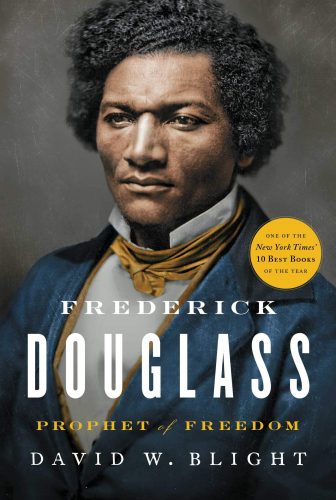
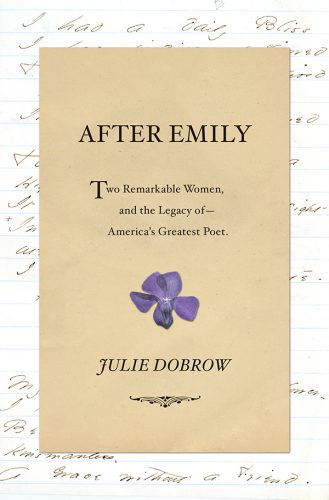
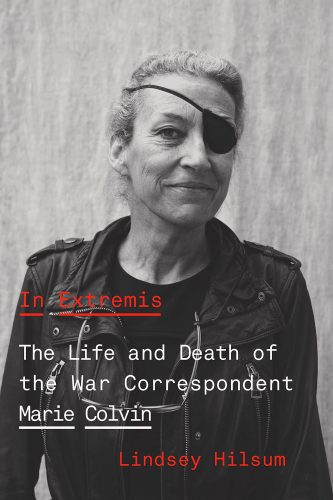
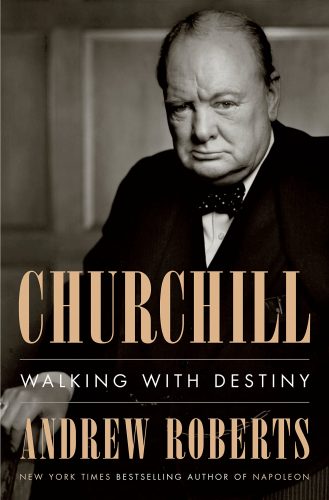

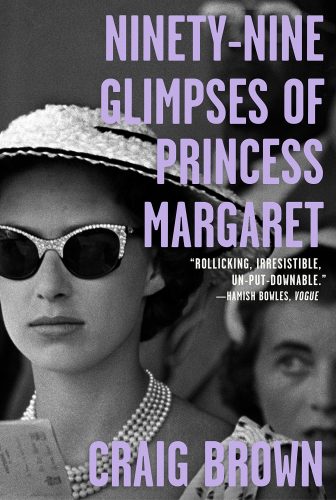
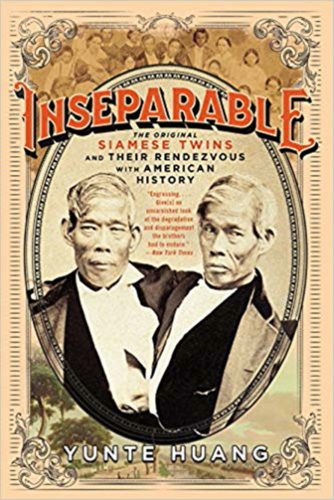
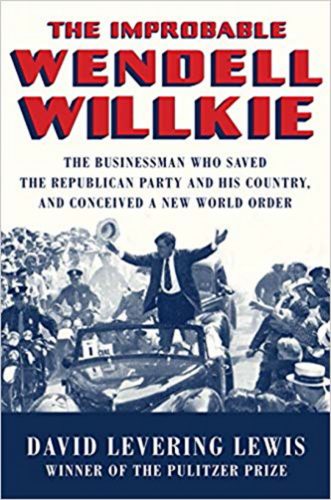
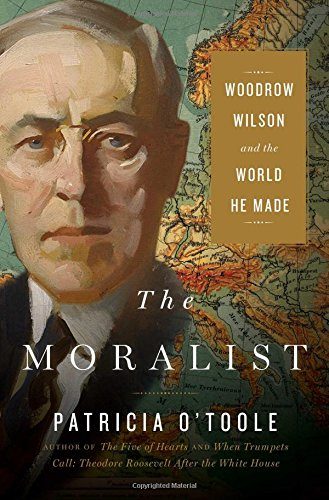
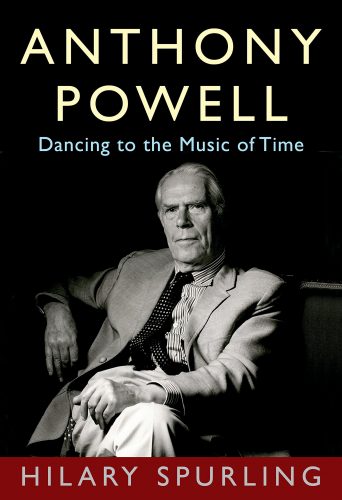
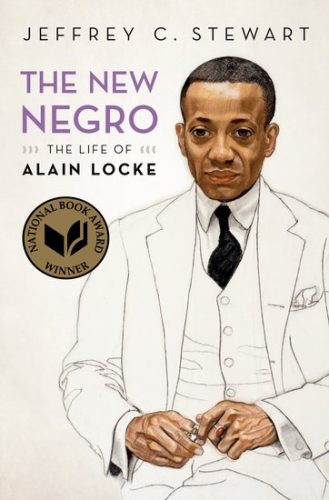
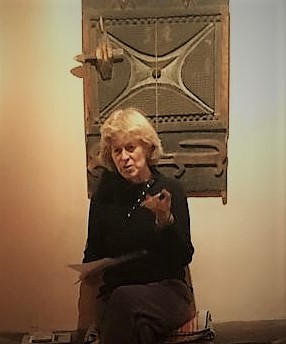 Alison Owings knew she wanted to write about homelessness, but she wasn’t sure how to approach the topic. Then, on a walking tour of San Francisco’s notorious Tenderloin neighborhood, she met Del Seymour, an elderly African American man leading a group of curious whites through the streets he knew so well. After all, he had earned the unofficial title of “the mayor of the Tenderloin.”
Alison Owings knew she wanted to write about homelessness, but she wasn’t sure how to approach the topic. Then, on a walking tour of San Francisco’s notorious Tenderloin neighborhood, she met Del Seymour, an elderly African American man leading a group of curious whites through the streets he knew so well. After all, he had earned the unofficial title of “the mayor of the Tenderloin.” Thank you so much, Will, for that incredibly generous introduction, and for all the thought and effort you’ve put into this. And many thanks to Jamie, and David, and Adam, for making me blush for the last twenty minutes.
Thank you so much, Will, for that incredibly generous introduction, and for all the thought and effort you’ve put into this. And many thanks to Jamie, and David, and Adam, for making me blush for the last twenty minutes.